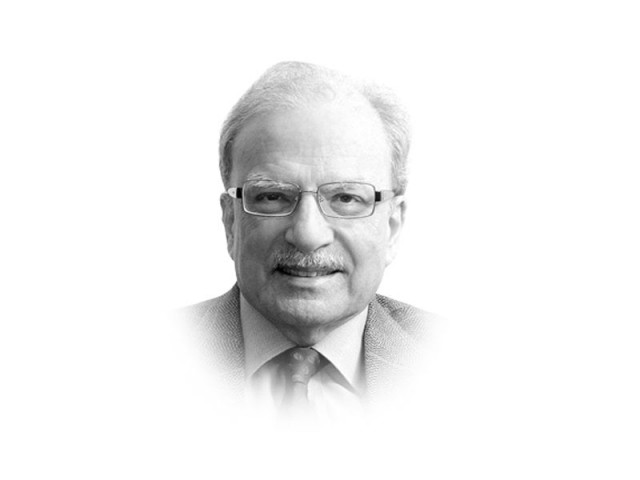Resetting relations with India
Increased trade with India will change the structure of Pakistani economy by basing it more on the country’s endowment

The writer is a former caretaker finance minister and served as vice-president at the World Bank
Looking at foreign relations from the perspective of economics, Islamabad should realise that resetting relations with India would be rewarding in several ways. Pakistan is the only country of a significant size that borders two giant economies — China and India. Until recently, both were growing at extraordinarily rapid rates. With a rate of growth three to four times that of the average for the old industrial nations, China had begun to catch up with them in terms of the size of its economy. In 2010, it overtook Japan and became the world’s second largest economy, after the United States. India, also because of the size of its population, was climbing on the world economic ladder. Pakistan has a great deal to gain with these two economies sitting right across its border. That said, there are a few changes occurring in India to which policymakers in the new administration need to pay some attention.
After having enjoyed a period of almost breakneck growth when the rate of increase in its GDP approached 10 per cent a year, India has seen the pace of economic expansion reduced by one-half. Growth has brought several problems to the surface, which its aging leadership does not seem to have the energy to tackle. Until the next elections, that must be held no later than the spring of 2014, the country is unlikely to move decisively to handle the many difficulties it faces, including relations with Pakistan. It is unlikely that a major change in economic relations with Pakistan will occur until India settles down politically. It is only after the 2014 elections that the Indian leadership will be inclined to develop its approach towards Pakistan. This gives Islamabad some time to develop its own policy towards its neighbour, which would help the new administration in India that will take power in 2014 to look at Pakistan in a different way.
There will also be a pause in the further development of India’s relations with the United States. How these will evolve will have consequences for Pakistan. If America was hoping to balance China’s rising power by promoting that of India, that may not happen on the time-scale Washington had set its sights on. Suddenly, India has come face to face with economic, political and social problems that were still below the surface when, in 2010, President Barack Obama famously called India “not a rising but a risen power”. That was during his second visit to Asia as the American president. He turned to India when his approach to China during his first Asian visit drew the ire of the American political right. The conservatives and ultra-nationalists were not ready to give up the notion of American exceptionalism, which was based on the strong belief that the country was created to export its social and political values to the outside world. China, on that score, had very little to share with America. On the other hand, India, the world’s largest democracy, had more in common with America. It would make a good partner.
However, the Indian policy elite does not share Washington’s enthusiasm about the role their country could play on the global stage. In the words of Manjari Chatterjee Miller in an article contributed to a recent issue of Foreign Affairs, “for the last decade, few trends have captured the world’s attention as much as the so-called rise of the rest, the spectacular economic and political emergence of powers such as China and India ... within India itself, the foreign policy elite shies away from any talk of the country’s rising status.” If this interpretation is correct, internal Indian dynamics will set it towards playing a greater role in its own neighbourhood rather than getting involved in global politics. This will naturally affect the way India will view Pakistan and Pakistan will approach India.
If Pakistan manages well this period of transitions — those taking place in India and in the United States — it will benefit a great deal. Increased trade with India will significantly add to the trade-to-GDP ratio, change the structure of the economy by basing it more on the country’s endowments, increase employment per unit of national output, and turn some of the cities on the country’s borders into centres of international commerce. Pakistan could also provide transit routes for India’s growing trade with China, the countries in Central Asia and the Middle East. All this will probably add one to two percentage points of GDP growth a year by 2025. Resetting the Indian policy, therefore, has large rewards for Pakistan.
Published in The Express Tribune, June 3rd, 2013.
Like Opinion & Editorial on Facebook, follow @ETOpEd on Twitter to receive all updates on all our daily pieces.















COMMENTS
Comments are moderated and generally will be posted if they are on-topic and not abusive.
For more information, please see our Comments FAQ